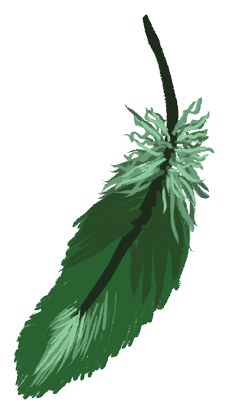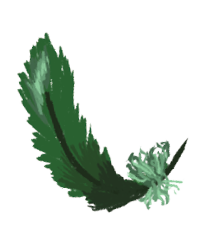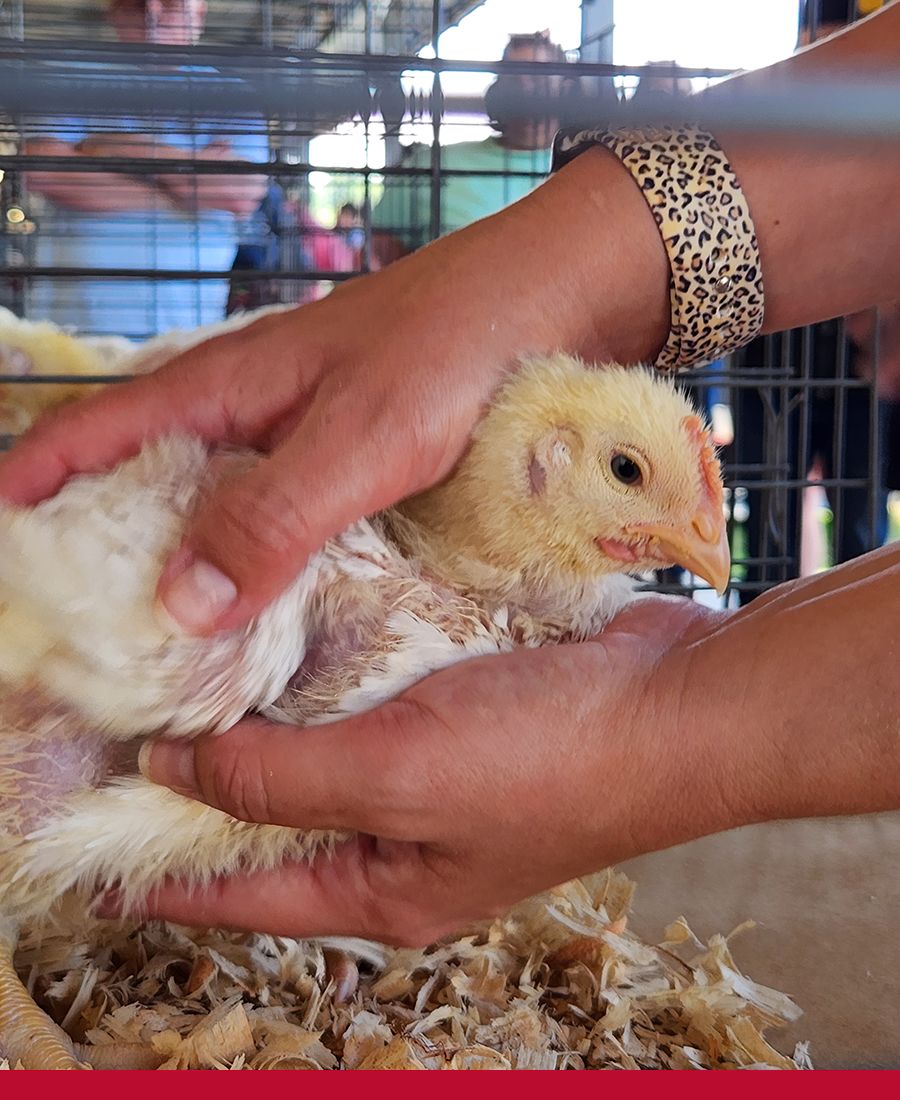Flocking to the Classroom
CAES-developed educational programs introduce poultry science into middle school and high school STEM classes

On a Monday morning in late June, just over two dozen middle- and high-school teachers trickled into a classroom at the University of Georgia Poultry Research Center and took their seats in groups of two and three.
Some carried notebooks or scouted for outlets to plug in laptops, while others carried only cups of coffee or water bottles, resembling adult versions of the students who populate their classrooms during the school year.
Hailing from public schools around the state, the teachers were preparing for Avian Academy, a highly popular three-day program for agriculture and STEM teachers hosted annually by the Department of Poultry Science in UGA’s College of Agricultural and Environmental Sciences (CAES).
Back to class
While most who attend the summer program are agriculture teachers interested in incorporating poultry science into their curriculum, others teach related courses or work with agriculture programs in their home schools and districts. According to the Georgia Department of Education, there are 397 agricultural education programs in middle and high schools around the state, plus 57 agricultural programs in elementary schools.
The teachers spend three days learning from poultry science department faculty and staff, getting hands-on experience in what they will teach in their own classrooms during the school year. Modules include the history of Georgia’s poultry industry; breed identification; alternative production systems like backyard flocks, embryology and incubation; food safety and more.
Brian Kiepper, an associate professor of poultry science and Avian Academy instructor, pointed out to the teachers that chickens are an ideal teaching species for both physiological and cultural reasons.
“Chickens have a very short gestation time. If I have a fertilized egg on day zero, I will have a chick in 21 days,” Kiepper said. “Also, the story of our food and where it comes from is fascinating. When you combine it with history and culture and you find stories to tell — and there are a million of them — you’ll blow your students’ minds, and they’ll remember it every day.”
C.J. Pinson, an agriculture education teacher at South Effingham Middle School in Guyton, Georgia, attended Avian Academy to bolster his poultry knowledge after the school received a grant from the National FFA Organization to expand the poultry science curricula in middle and high school agriculture courses.
“Students in the agricultural education program are required to participate in FFA. We cover egg candling and evaluating layers for production, but I hope that this course will provide practical ideas we can bring into the classroom to increase the number of lessons we teach in poultry science,” said Pinson, who earned his bachelor’s degree in agricultural education from CAES in 2007.
Stonecrest, Georgia-based Arabia Mountain High School agriculture teacher Sabrina Davis said that incorporating poultry science for urban and suburban students generates citizens who are more connected to their food systems.
“It is easier to raise chickens in backyards and on school grounds than other animals, and it is a great way to bring the idea of agriculture full circle for these students,” she said.
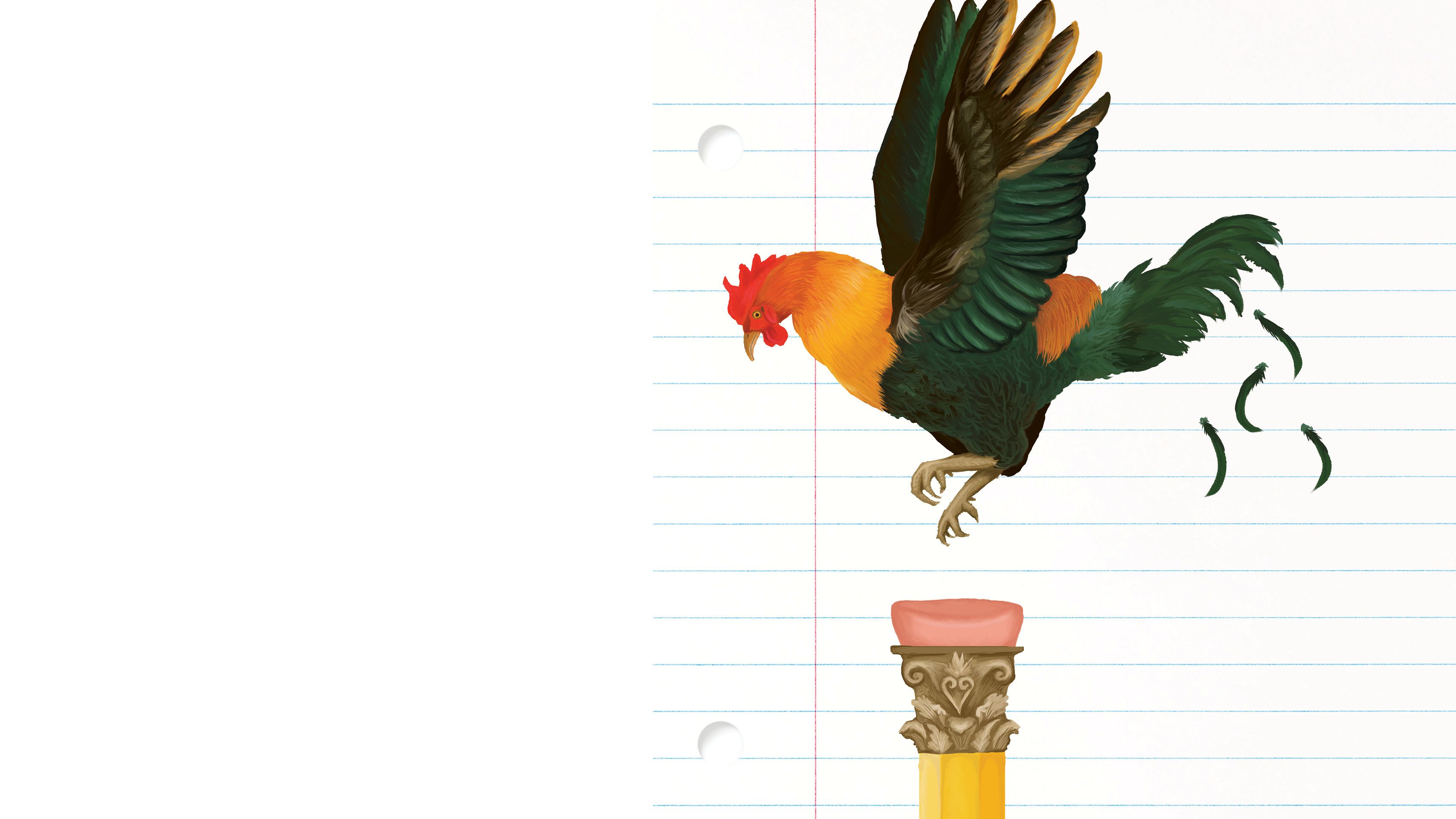
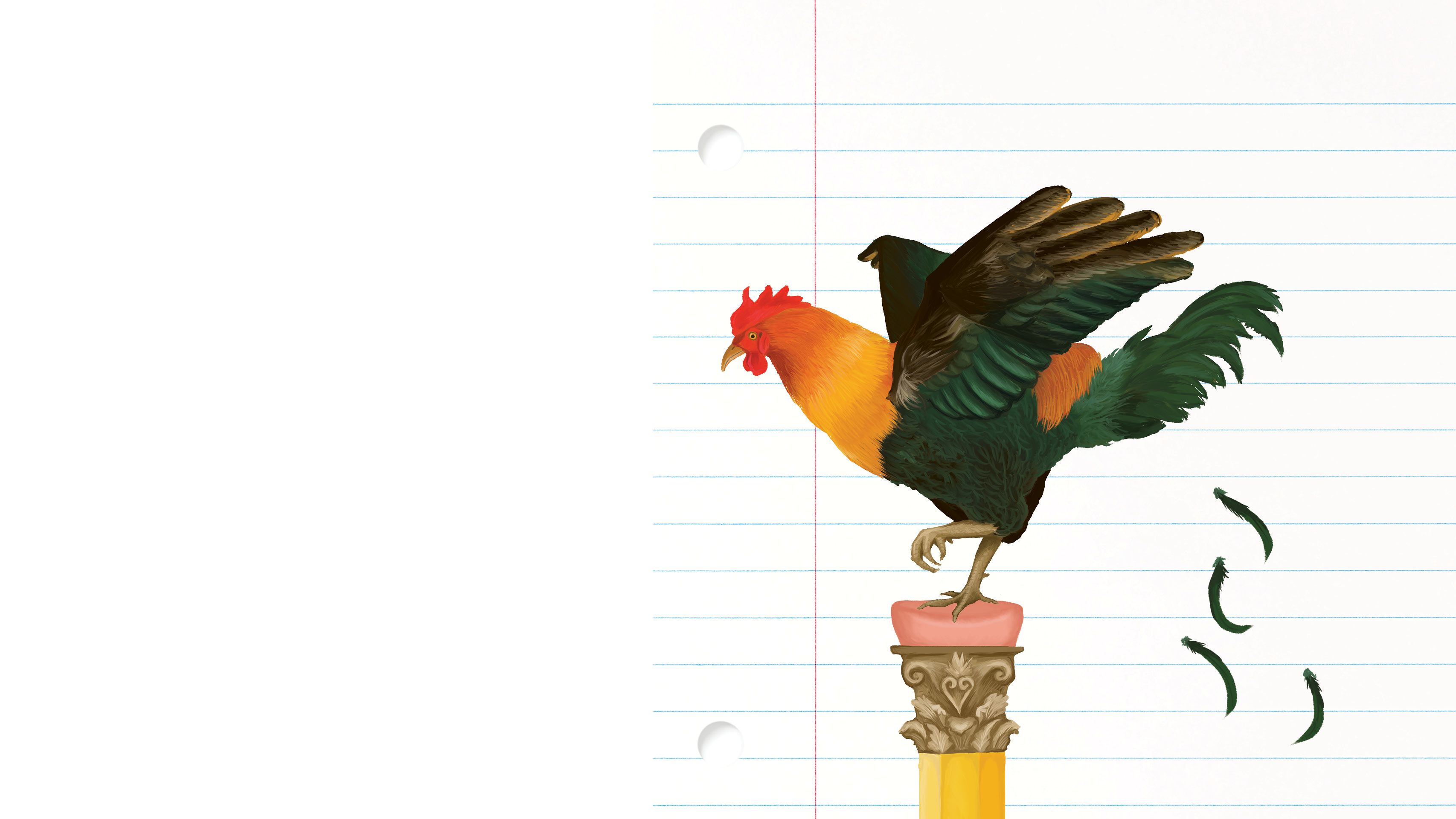


Weeks-old chicks raised at UGA are inspected by Avian Academy participants as part of a lesson on poultry judging.
Weeks-old chicks raised at UGA are inspected by Avian Academy participants as part of a lesson on poultry judging.


Young Learners
The Department of Poultry Science is developing an Avian Academy 2.0 that focuses on avian science and biotechnology, said Jessica Fife, outreach coordinator for the department.
Building on the foundation set by Avian Academy, and at the request of the Georgia Department of Education, the poultry science department tasked Fife to work with CAES and Christa Steinkamp, the curriculum and technology director for the Georgia Agricultural Education Program, to design a poultry science pathway that includes a new poultry science course and a new avian science and biotechnology course for the state’s public schools. The Georgia Agricultural Education Program oversees classroom instruction, supervised agricultural experiences and student organization involvement for the Georgia education department. The Georgia education department approved the poultry science course to count as a fourth science option beginning in the 2022-23 school year.
Industry support for the poultry science curriculum has been overwhelmingly positive and has included support for agricultural education programs in top poultry-producing counties.
At Gwinnett County’s Archer High School in Lawrenceville, Georgia, engineering teachers Sherry Aglietti and Alex Reed partner with agriculture educators Savannah White and Tayelor Long to teach combination engineering and agriculture courses.
In the classes, students work together to design and build facilities and equipment for agriculture projects, receiving credit in both the Agriculture, Food and Natural Resources and STEM career clusters.
“Engineering is problem-solving,” Long said. “We give them a problem, let’s say making a greenhouse irrigation system for $150 or less, and we let them figure it out. It helps students identify their interests and is a good way to introduce them to engineering, but also to help them understand that to design and build something, you have to become an expert in what you are building it for.”
As agriculture becomes more advanced and incorporates new technologies, this combination of disciplines is growing in relevance, Reed added.
“We give students complimentary skillsets, and we are trying to change the mentality that students who aren’t going into technical programs won’t benefit from career, technical and agricultural education classes,” he said. “College classes are becoming more and more integrated with experiential learning, and having these programs available to all of our students can help them figure out what they are interested in pursuing.”
Poultry science Professor Emeritus Jeanna Wilson reviews examples of egg abnormalities with agriculture educators and explains why they occur. Domestic egg production often results in common oddities, some of which impact egg quality.
Poultry science Professor Emeritus Jeanna Wilson reviews examples of egg abnormalities with agriculture educators and explains why they occur. Domestic egg production often results in common oddities, some of which impact egg quality.
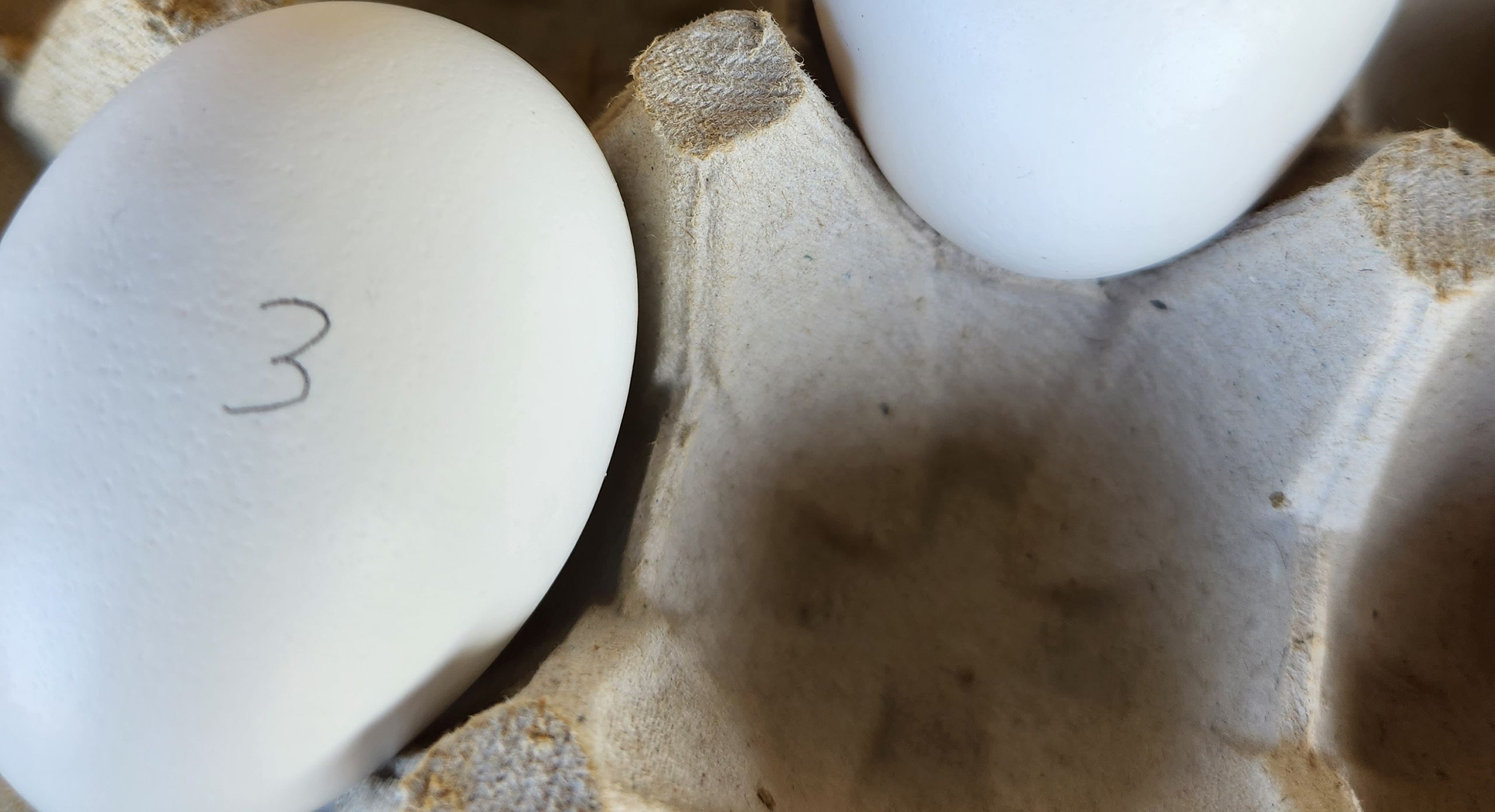


Teachers attending Avian Academy learn how to candle eggs using specialized equipment in the UGA Poultry Research Center. Candling is an egg-grading process in which penetrating light is used in a darkened room to inspect eggs for signs of fertility, defects or freshness. First used to check embryo development in incubated eggs, candling is used in modern commercial egg production primarily to rate quality.
Teachers attending Avian Academy learn how to candle eggs using specialized equipment in the UGA Poultry Research Center. Candling is an egg-grading process in which penetrating light is used in a darkened room to inspect eggs for signs of fertility, defects or freshness. First used to check embryo development in incubated eggs, candling is used in modern commercial egg production primarily to rate quality.
The science of agriculture
The Archer High School cluster is one of three vertical agricultural STEM (AgSTEM) programs in Gwinnett County that incorporate agriculture lessons at every stage from elementary through middle and high school, said Davelon Norris, instructional coach for the Gwinnett County Public Schools’ Department of College and Career Development.
Since the AgSTEM program began at Archer in fall 2019, students have incubated and hatched chicks, designed and built a chicken coop for the school’s small flock of laying hens, designed and built a miniature aquaponics system for the school greenhouse, and built a series of raised garden beds to grow plants and vegetables. The coop features a self-contained, solar-powered electrical system for lighting, ventilation and heating.
“When the students designed the coops last year, they had to research chickens so they would know their needs in terms of habitat and coops and the best practices for care of the animals,” Aglietti said. “I have some of my students over multiple years, and they really like the real-world connection between what they are doing for class and how it ends up being used. Students who were in the class two years ago when we were designing the chicken coop can now see it in use. They see the connection between design and application.”
Long, a CAES graduate with dual bachelor’s degrees in agricultural education and agricultural communication, began teaching at Archer in fall 2022.
Early on any given school day, the students in Long’s first-period agriculture class spread out to care for the school’s chickens, maintain garden plots and the greenhouse, and work on projects for the class. Eggs are collected and used by the school’s food science classes or distributed through the school’s counseling department to help students whose families are experiencing food insecurity.
“The lessons I have learned about agriculture have made me more aware of how our ways of life affect the environment. If only everyone knew and understood that we could make changes to our way of life to make our ecosystems healthier,” said junior Isabelle Ferere, a student in Long’s sustainable agriculture class.
Moving into its fourth year, Archer’s program will soon add an environmental science teacher to the program staff. “We are looking at branching out even more to include art,” Aglietti said.
Avian Academy is held annually each summer and is open to middle- and high-school vocational, agriculture and STEM teachers.
News media may republish this story. A text version and art are available for download.


